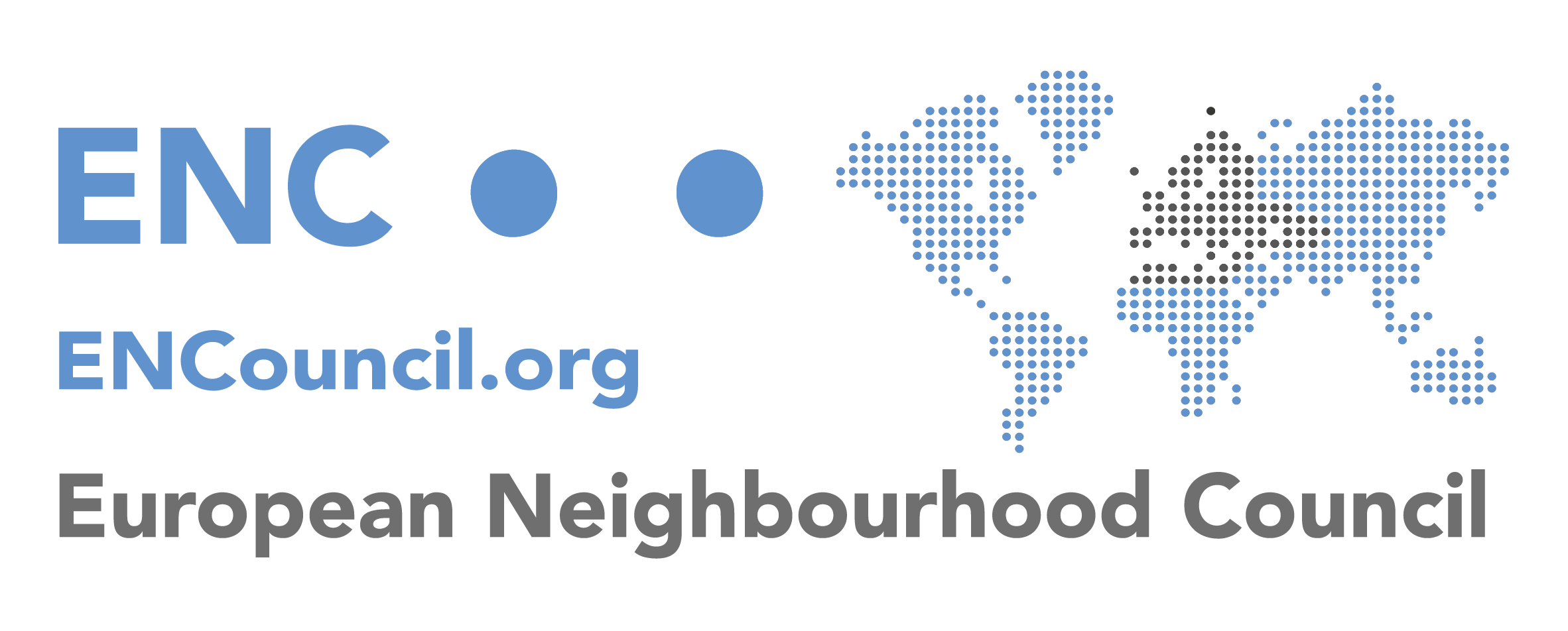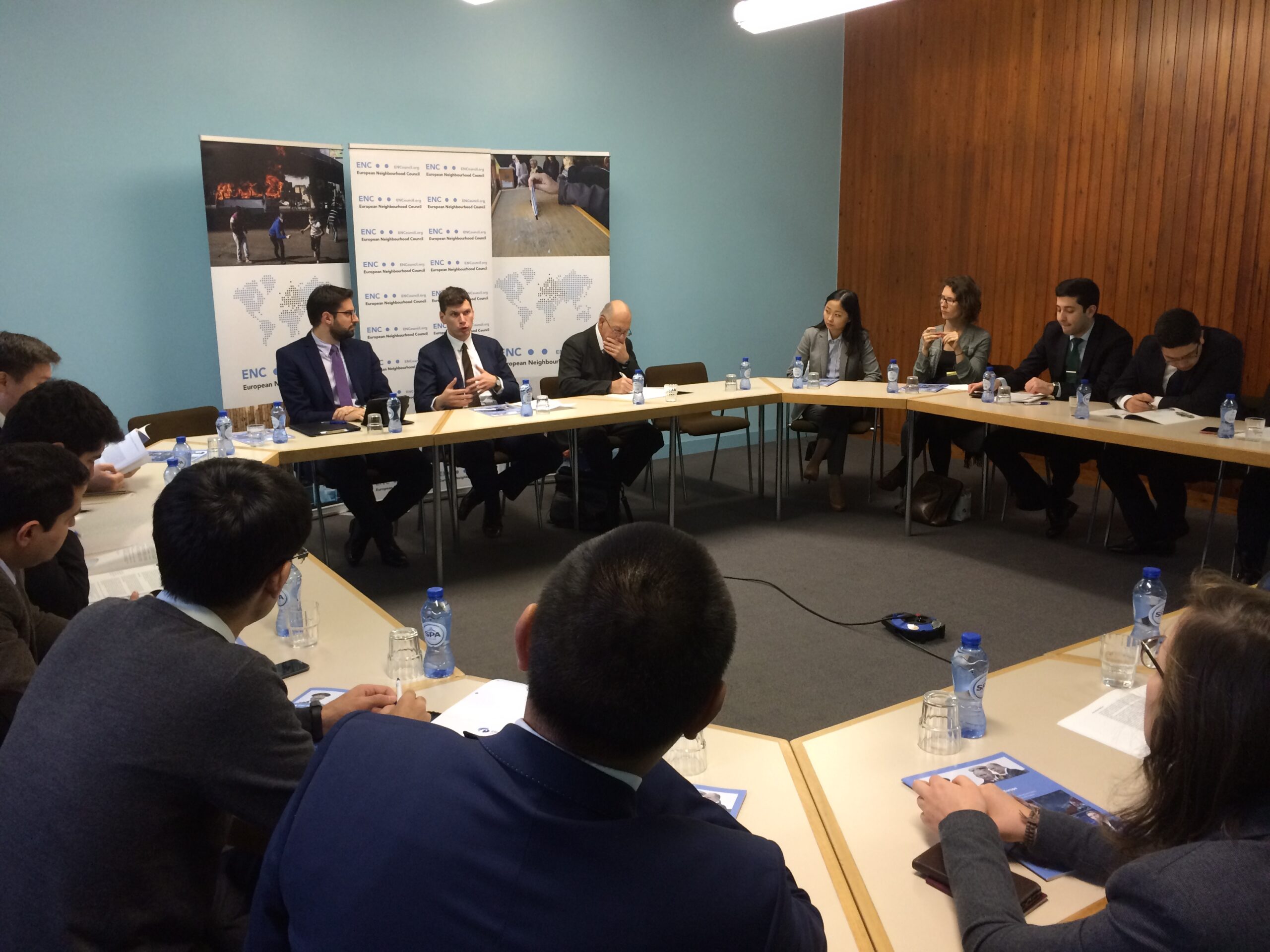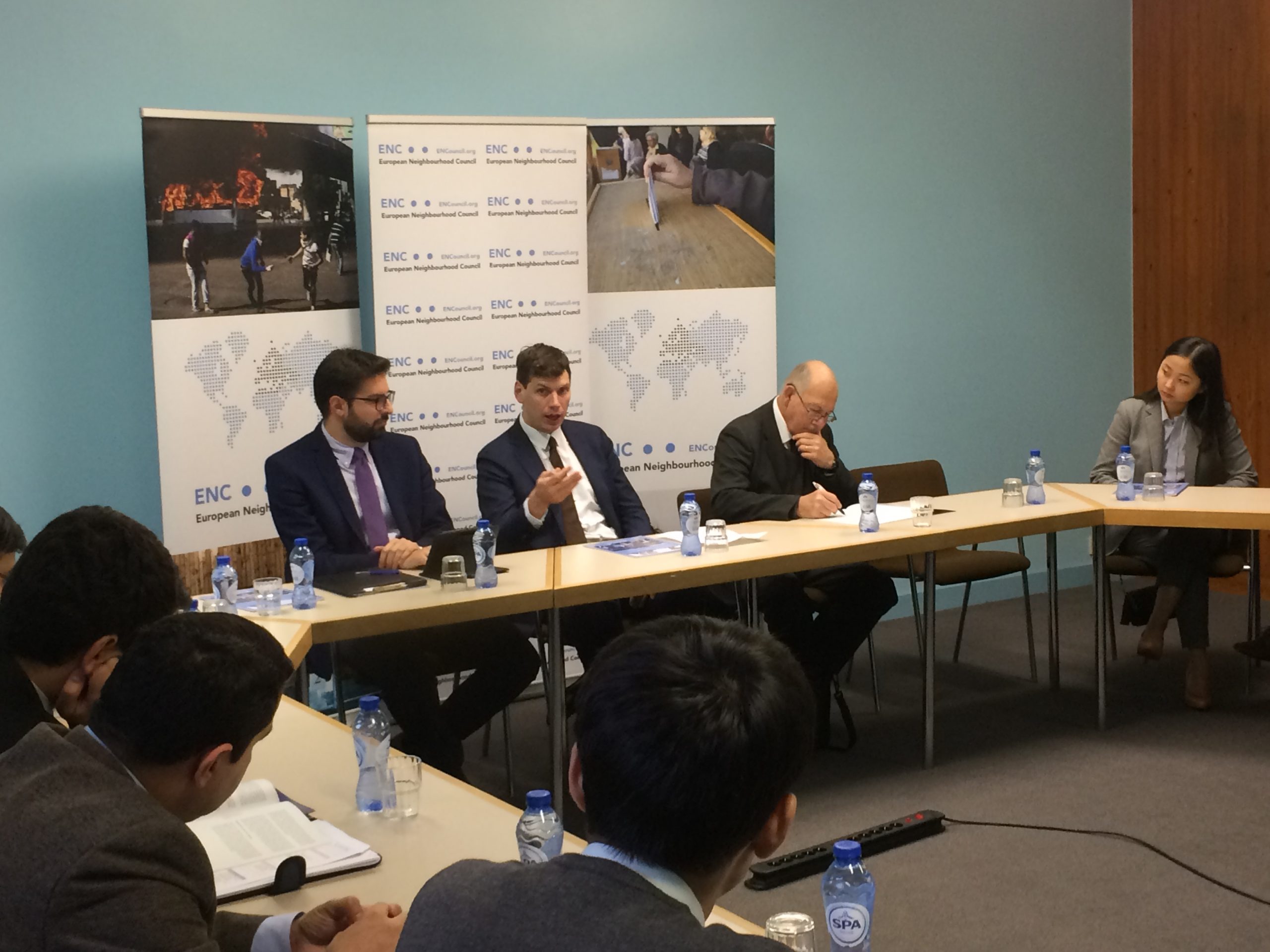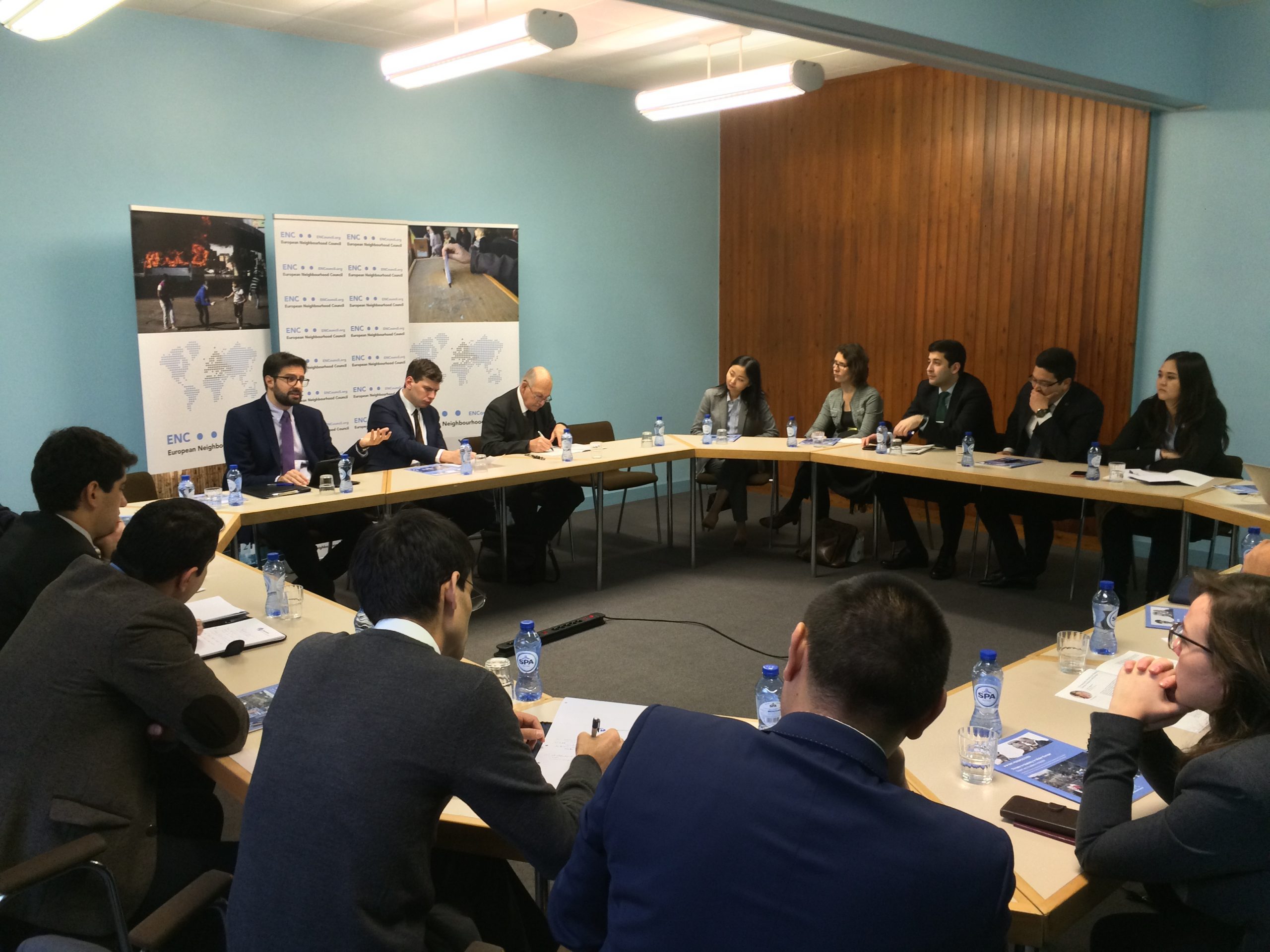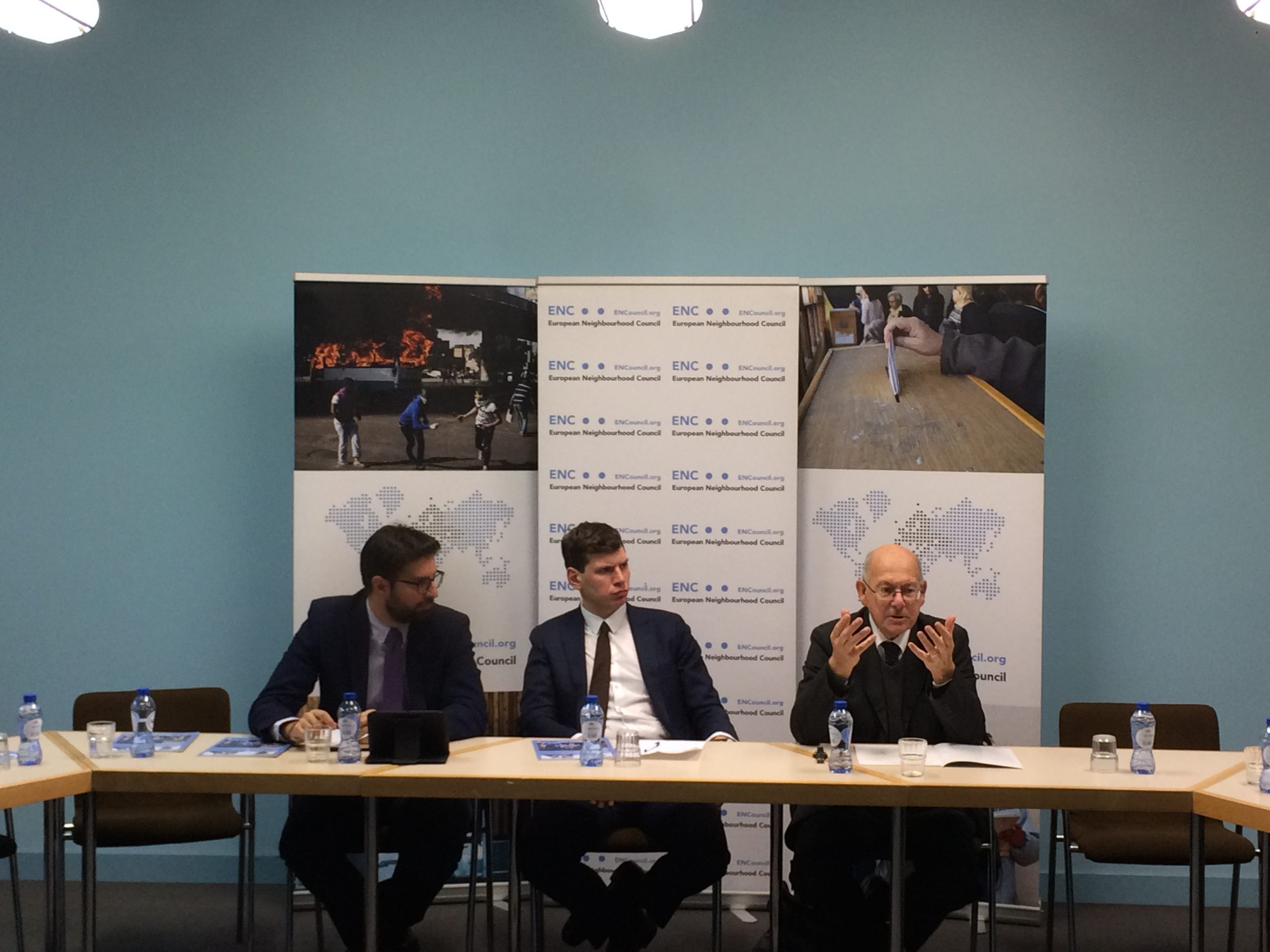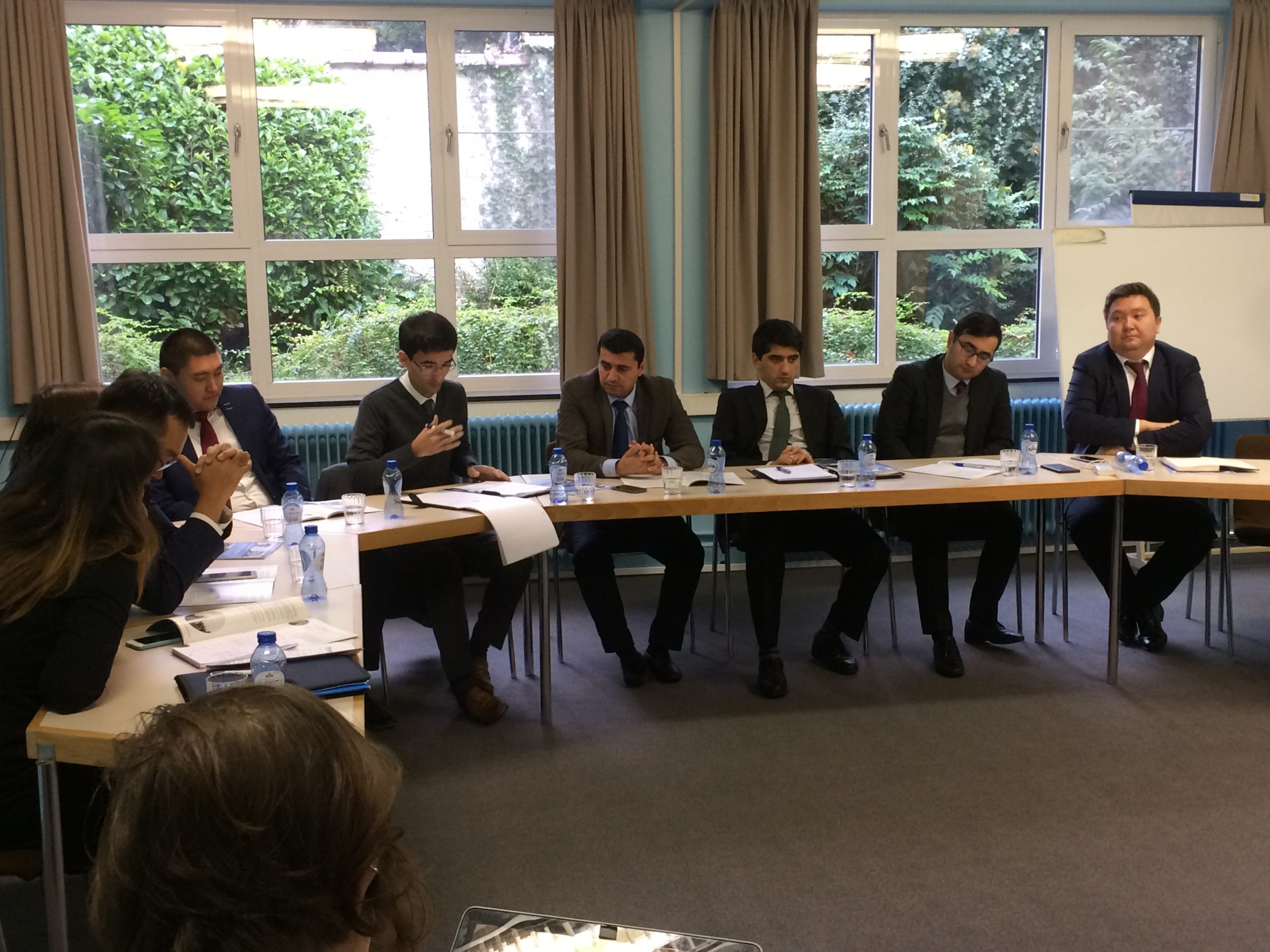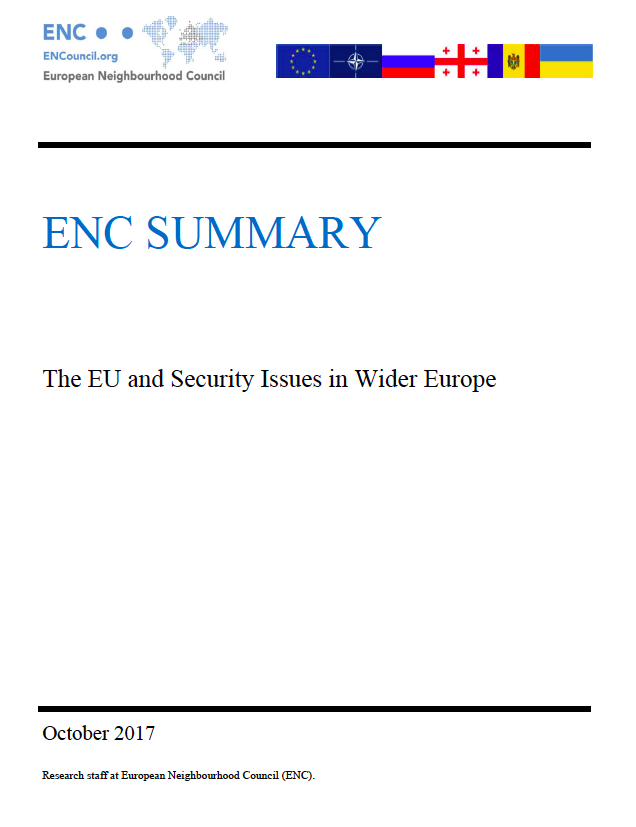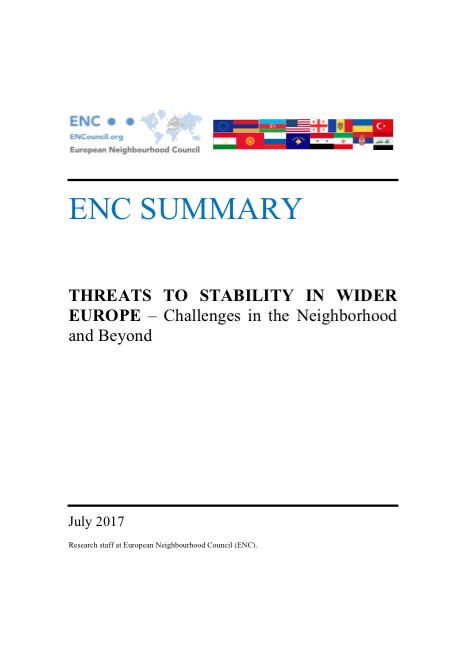Policy Dialogue: Building Peace when Solution to Conflict is Not in Sight
Development Cooperation in the Areas of Protracted Conflicts in the Eastern
Neighbourhood (05/12/2017, Brussels): The European Neighbourhood Council (ENC),
together with the United Nations Development Programme (UNDP) and the Swiss Mission
to the European Union, organised a policy dialogue dedicated to the role of development
cooperation in conflict areas in the Eastern European Neighbourhood.
Training Course in Diplomacy, Stability and Prosperity for Junior Diplomats from Central Asia and Mongolia
For the second year running, European Neighbourhood Council (ENC) – together with the Clingendael Netherlands Institute of International Relations – hosted a young group of diplomats from Central Asia and Mongolia on the 8th of November at ENC head office in Brussels. The programme also included meetings with officials from the European Commission, the European External Action Service (EEAS) and NGO representatives working actively in Central Asia like ENC.
One of the aims of this programme is to elevate regional cooperation and give the opportunity to junior diplomats to interact with experts from European civil society on how organisations deals with tensions between countries as this is a challenge for achieving cooperation in the Central Asia region and what kind of projects they are implementing in the region.
The group consisted of twelve junior diplomats from Kazakhstan, Uzbekistan, Kyrgyzstan, Tajikistan, Turkmenistan and Mongolia.
ENC’s Model of Partnership and Cooperation
ENC’s Managing Director Samuel Doveri Vesterbye opened the training session, presenting ENC’s research activities and projects across the Wider European Neighbourhood, embracing also Accession Countries and Central Asia. In particular, he highlighted ENC’s horizontal structure, which gathers academics and expertise from most of Eurasia, Enlargement Countries, European Neighbourhood Policy Countries and North Africa. In his opening remarks, Mr. Doveri Vesterbye advocated that despite the fact that EU has the expertise in several areas; Central Asia has the possibility to increase cooperation. Therefore, it is crucial to strengthen the synergy and dialogue in the region.
EU – Central Asia Relations: Shaping a New Strategy Together
In the second part of the discussion, Andreas Marazis, Head Researcher for Eastern Europe and Eastern Partnership at ENC, identified the current stage and future perspectives of the EU-Central Asia relations. The EU is one of the key regional players in Central Asia and it adopts different political instruments to support the region’s development in several areas, namely democracy or nuclear safety. Yet, the Central Asian countries are still moving slowly in their democratisation process, leading to reluctance among the foreign/Western donors community to invest in the region. In order to overcome this impasse, Andreas Marazis highlighted the crucial role of the young generation as well as the need of a bottom-up model to take ownership and increase the cooperation with the EU, especially in shaping the new EU Strategy for Central Asia by the end of 2019.
Stronger Integration and Opportunities for Central Asia and Mongolia
Among the distinguished speakers, Dr. Andrea Mogni, ENC external advisor and former senior policy coordinator and financial expert at the EEAS, highlighted during his presentation the differences among these countries in terms of demography, management of public affairs or partnership prospective. One of his main remarks was the need for Central Asia to develop deeper and stronger ties at the regional level. The region needs to develop inter-cooperation in various sectors, such as water, energy and electricity, highways, infrastructure, digitalisation and data exchange. This could lead to a productive and fruitful learning process of best practices, which could benefit the Central Asian states and attract Foreign Direct Investments (FDI). He referred to the financial instruments which Central Asian scholars have access to, such as the Horizon2020, which is the biggest EU-funded project (70bn for 2014-20), covering scientific and societal matters among other things.
Dr. Mogni also mentioned the role of thematic instruments covering issues related to food security, water management and migration. He also highlighted the European Investment Bank (EIB) and the European Bank for Reconstruction and Development’s (EBRD) role in financing big infrastructure projects supporting the countries in their development process.
The Training Session for junior diplomats is also part of ENC’s 2018 European Diplomatic Training Program, in which various speakers, including Dr. Mogni, teach diplomats in EU affairs, financial instruments and decision-making.
The European Neighbourhood Council (ENC) is publishing a summary of “The EU and Security Issues in Wider Europe” conference organised by ENC and University of St Andrews, that took place in St Andrews (Scotland, UK) on October 18, 2017. The summary includes inputs from ENC Head Researcher for Eastern Europe and Central Asia Andreas Marazis and ENC research staff.
The full summary is available in PDF format below.
Radio interview with Andreas Marazis on the new Ukrainian language law
Ukrainian President Petro Poroshenko has signed Law of Ukraine No. 2145-VIII on Education which was adopted by the Verkhovna Rada on September 5, 2017. Several groups such as Poles, Romanians, and Hungarians, all of which have sizable ethnic communities in Ukraine raised concerns about the new bill.
The Slovak Public Television and Radio (RTV) interviewed ENC Head Researcher for Eastern Europe & Central Asia on the potential implications of the new Ukrainian language law. The full text of the interview can be found below as well as part of his radio interview (in Slovak).
Interview
RTV: Why is the signed language bill controversial? Can you explain the sharp reaction by Hungary and Romania?
AM: Ukraine’s president has signed into law (25/09) a controversial bill that makes Ukrainian the required language of study in state schools from the fifth grade on. The bill does not exclude lessons in other languages; students can still learn their native languages as a separate subject. This law will be gradually implemented and will enter fully into force by 2020.
Ukraine is a multi-ethnic country with at least 10 ethnic minorities. Hungarian’s (0,3%) and Romanians (0,8%) are among them.
Previously, students in Ukraine were able to study all 11 years in the language of an ethnic minority living in Ukraine, meaning that all lessons were conducted in the minority language, and the state Ukrainian language was present only in studying separate subjects – Ukrainian language, literature, history.
The new law changes that. Starting from Grade 5, the education process will be in Ukrainian. Minority languages and the literature of the minority will be studied as courses. Additional subjects may also be studied in the language of the minority (the exact list is to be worked out later).
Hungarians, Romanians, Bulgarians, Polish and Russians complain that the new law will forcefully establish a mono-ethnic language regime in a multinational state and that this change is unconstitutional. More specific the law, according to MFA from the respective countries, violates the European charter for regional languages, the Law on national minorities in Ukraine, and Ukraine’s international agreements with its neighbouring countries.
RTV: What is the internal political rationale behind this bill?
AM: Language has become a hot issue across the country, particularly in eastern regions where the majority of the population speaks Russian as its first language. Let me highlight here that ethnic Russians make up to 17% (8 million) of Ukraine’s population of 45 million.
The 2012 language bill, which I referred to before, allowed for minorities to introduce their languages in regions where they represented more than 10% of the population. This would mean the adoption of regional languages in about 13 of Ukraine’s 27 regions, some went as far as saying that this would strengthen the split between western and eastern Ukraine.
There are more than 15,000 schools across Ukraine. Of these, Russian is used as the primary language in 581; Romanian in 75; Hungarian in 71; and Polish in five.
Ukrainian Education Minister Liliya Hrynevych added that members of minority communities in Ukraine should speak Ukrainian fluently to succeed in Ukraine.
However this law is aimed at protecting the Ukrainian language and identity (mainly against Russian language), but it is also a matter of funding. In most European countries secondary and university education in minority languages is financed from private sources, not the state.
RTV: Did the singing by Ukrainian President Poroshenko of the language bill that makes Ukrainian the compulsory language in state schools from the fifth grade on come as a surprise?
AM: First of all, Ukraine has the experience of being split up between various empires and states, each of which attempted to assimilate Ukrainians by prohibiting the use of their native language; especially during the Soviet era.
The current isolation of ethnic minorities is another reason for wanting to increase teaching in Ukrainian in schools. According to Mrs. Hrynevych, 36% of 2016 school graduates in Zakarpattia Oblast failed their Ukrainian language final exam. In its predominantly populated by Hungarians Berehove Raion, that figure rises to 75%. These children have no opportunity to enter Ukrainian universities and are de-facto cut off from Ukrainian society. This will eventually breed isolationism and separatism, a topic quite sensitive at the moment to say the least, given the situation in Donbas.
RTV: What will the effect of this bill be on the EU-Ukrainian relations?
AM: Despite the fact that the contested Article of the law has been already sent for review to the Council of Europe and that Ukraine will collaborate with the embassies of the affected states on the implementation of the 7th Article of the law, Hungary has threatened to block Ukraine’s further integration with Europe. Bulgaria pledged to do the same. Romanian President cancelled his visit to Kyiv protesting for the bill. The foreign ministers of Hungary, Greece, Romania, and Bulgaria have also complained to the Council of Europe and OSCE about the violation of the rights of their minorities in Ukraine. Having 4 EU member states against you less than two months before the 5th EaP Summit is not a positive sign for Ukraine’s EU aspirations.
RTV: Won’t Ukraine risk finding itself isolated?
AM: When you have such harsh statements such as the one by the Hungarian Minister of Foreign Affairs that Hungary will block all steps within the European Union that would represent a step forward in Ukraine’s European integration process, knowing how institutions such as the EU and NATO operate, based on consensus, then Ukraine indeed will find itself facing a dead end. However all depends on the review of the law by the CoE and whether Poroshenko’s administration will take it into consideration or not.
Radio interview (in Slovak): https://
The European Neighbourhood Council (ENC) is publishing a summary of the event organized on the 7th of July at the European Institute of Peace (EIP) in Brussels. The event was organized to launch a report produced in collaboration with University of St Andrews, which can be found here.
The summary includes input from ENC Academic Council members as well as ENC research staff.
The full summary is available in PDF format below.
 Threats to Stability in Wider Europe – Challenges in the Neighborhood and Beyond
Threats to Stability in Wider Europe – Challenges in the Neighborhood and Beyond
